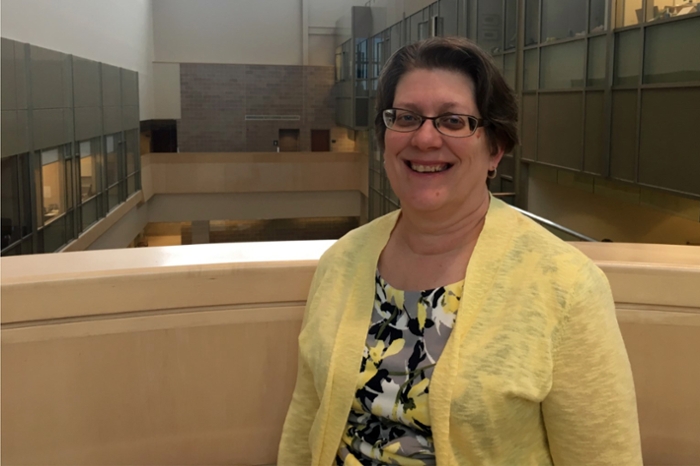
Communication a big part of accreditation
Dr. Blakley discusses the role student feedback plays in our accreditation process
Open communication is a big part of the accreditation process—and not just among faculty, staff and the accrediting body, but with our students, too.
“First we have to ensure that our processes – our policies and procedures – meet the standard,” explained Dr. Pat Blakley, associate dean of undergraduate medical education. “Then we look at how we ensure that we’re doing what the policy requires.”
Blakley goes on to explain that this entails revisiting, revising and creating procedures, as well as effective data collection. It also requires listening to the experiences of our students, which directly relates to their success in completing medical school.
Student feedback plays a significant role in the accreditation process, highlighting strengths, weaknesses and areas in which the college could improve.
There are currently several ways that students directly provide feedback to the CoM, including through input at the end of every course (whether it’s evaluating the course or the instructor), and through face-to-face meetings like the monthly dean’s student forum and monthly lunches with Blakley as head of the program. As well, fourth-year students participate in the Association of Faculties of Medicine of Canada (AFMC) Canadian graduation questionnaire as they are completing their undergraduate studies.
“The challenge with that is that it really is at the end of the four years,” she commented. “And it’s easier and more timely to be able to respond to concerns if we’re able to hear about them earlier in the process. (Our) students have the opportunity to provide us with feedback in a timely manner with the curriculum feedback system, which they can use to provide us with feedback almost instantaneously—whether it’s positive, or feedback around things that have not worked well.”
The feedback provided by the students, however important it is to accreditation, serves a broader purpose according to Blakley.
“Accreditation really should be about continuous quality improvement,” she stressed. “We certainly want to ensure the students don’t (think) the changes that are being made are due only to accreditation, and that come November 2 we will revert back to processes that were going on prior to (this) preparation.
“I see accreditation as being an impetus for us being better and not an excuse for us to be better.”
A full UGME accreditation site visit takes place this fall from October 29 to November 2.
